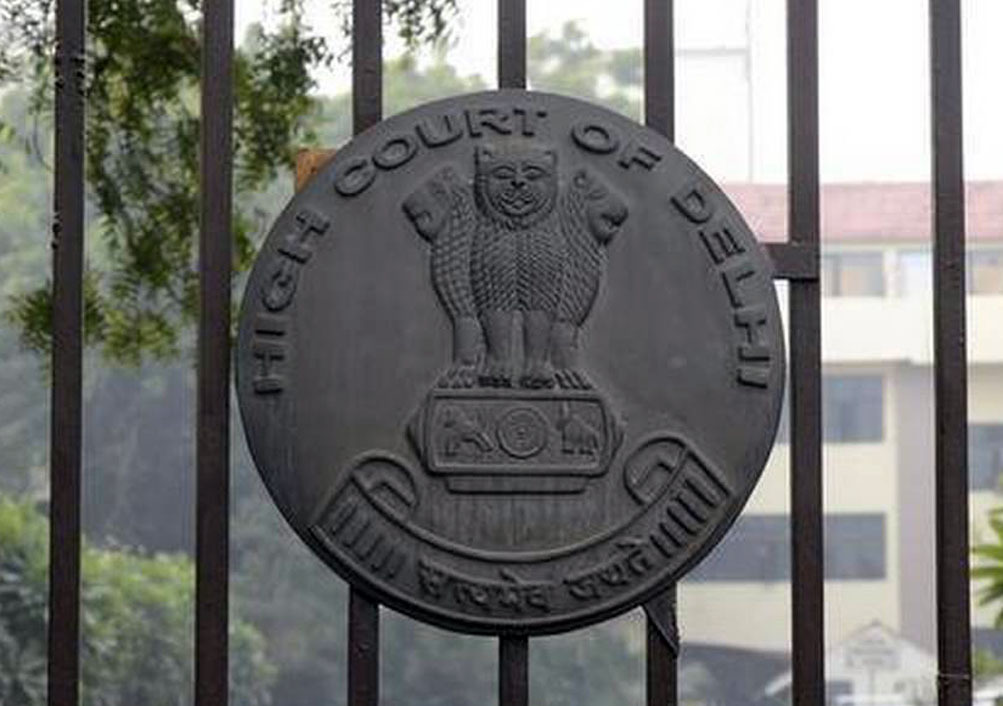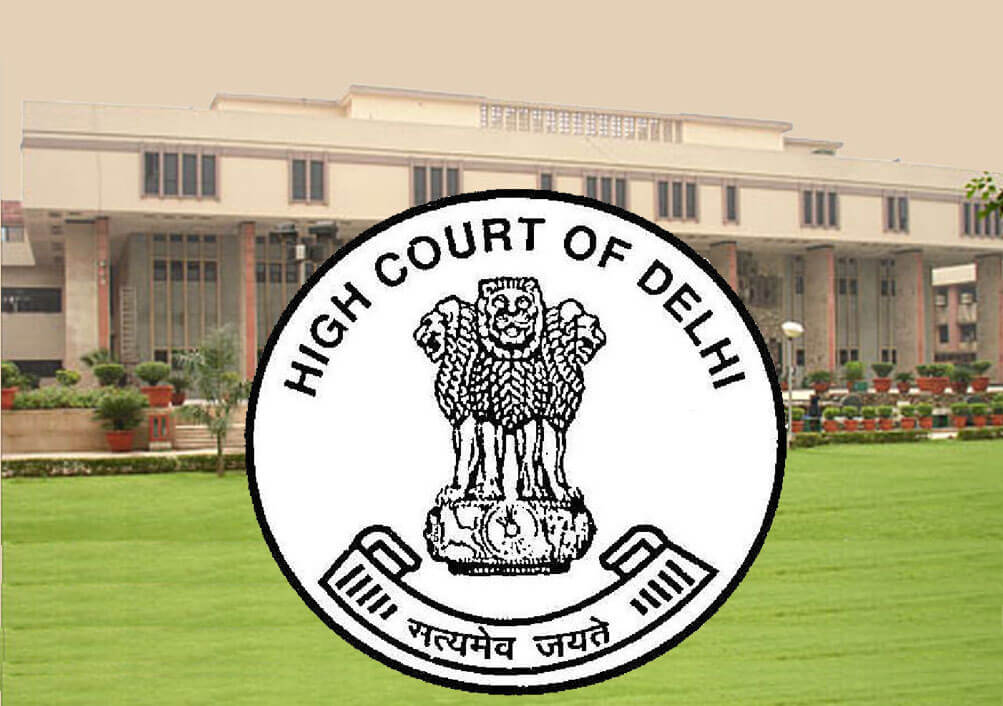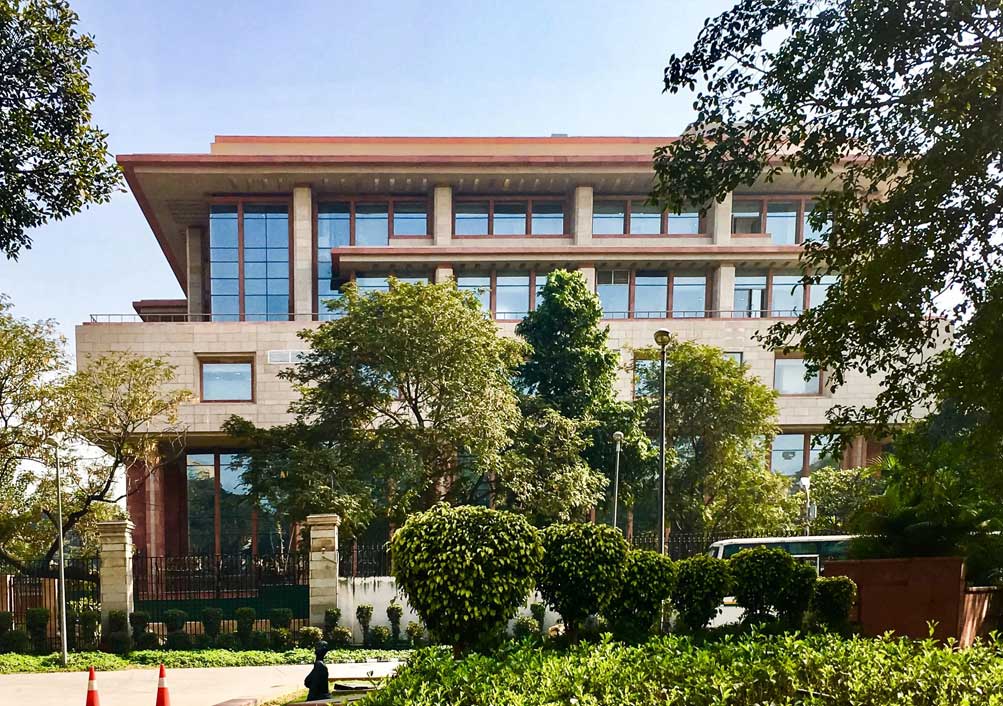Blatant copy-paste by Detaining Authority from altogether different case demonstrates clear non-application of mind: Delhi HC

Read Judgement: Gopal Gupta & Ors v. Union Of India & Ors
Pankaj Bajpai
New Delhi, August 10, 2021: While opining that the entire exercise of passing detention orders is mechanical, the Delhi High Court observed that the grounds in one such order have been lifted from an altogether distinct case and such a blatant copy-paste by the Detaining Authority demonstrates a clear non-application of mind.
A Division Bench of Justice Siddharth Mridul & Justice Anup Jairam Bhambhani directed for the release of detenus forthwith unless their custody is required in connection with any other case.
“The petitioners have produced certified copies of the detention orders dated May 17, 2019 passed in the case of Union of India & Anr. vs. Dimple Happy Dhakad (filed by the detenu’s wife) from the records available in the Supreme Court of India. A purposive comparative consideration of the grounds of detention in Dimple Happy Dhakad, also passed by Sh. R.P. Singh, the Detaining Authority in these proceedings; and the impugned detention orders, gives substance to the inference is that barring a few differences in the names and references etc – mutatis mutandis – the grounds are unerringly identical,” observed the Bench.
These observations came pursuant to a petition praying for quashing of detention orders under The Conservation of Foreign Exchange and Prevention of Smuggling Activities Act (COFEPOSA), 1974 and for further directions that the detenu be set at liberty forthwith.
Both the detenus are stated to be employees of a company ‘IMNPL’, a government recognized three star export house, which received an invitation for an exhibition to be held in the UAE and in pursuance thereto it had approached GJEPC seeking permission for participation, which was duly allowed. Accordingly, detenu Amit Pal Singh was entrusted with the work to hand-carry (personal carriage) the gold jewellery to the UAE for the purpose of exhibition.
The subject gold was duly assessed by the Customs at the time of clearance for export and then given back in sealed cover to the person hand-carrying the gold jewellery. The gold jewellery, which remained unsold at the time of exhibition was brought back by the co-detenu Amit Pal Singh from the UAE. The Customs Jewellery Appraiser after properly satisfying himself that the gold jewellery was the same as that which was exported, allowed Amit Pal Singh, the detenu to take the same by issuing necessary Customs Gate Pass in this behalf.
However, when Amit Pal Singh was about to leave the IGI Airport, after clearance from the Red Channel, the officers of the Directorate of Revenue Intelligence (DRI) intercepted him, statedly on specific information and carried out search of his baggage as well as his person allegedly on the suspicion that he was illegally importing gold jewellery for evasion of customs duty. Later, the DRI seized the gold jewellery.
After recording statements of the detenus u/s 108 of the Customs Act, 1962, they were taken into custody by the DRI, who formally placed them under arrest. Later, bail was granted to the detenus, pursuant to which IMNPL requested the DRI for provisional release of the seized goods, which request was rejected by the ADJ, Adjudication, Delhi and a Show Cause Notice was issued to IMNPL by the DRI, New Delhi proposing confiscation of the seized gold jewellery.
The matter then reached the High Court, which permitted the provisional release of all the goods seized by the DRI, save and except the gold jewellery that was seized at the airport. In the meantime, the detention orders came to be passed.
Pursuant thereto, the petitioners surrendered before the ASJ, Patiala House Courts, New Delhi and thereafter were taken to Tihar Jail, New Delhi, where the detenus are in custody till date.
The counsel for petitioner submitted that the dual role played by Mr. R.P. Singh – first, in the Economic Intelligence vertical of the CEIB (as claimed by the respondents) in the active investigation; and second, as J.S. (COFEPOSA) in passing the Detention Orders, goes to the root of the matter and defeats the very purpose of appointing a “specially empowered” officer u/s 3(1) of the Conservation of Foreign Exchange and Prevention of Smuggling Activities Act, 1974 (COFEPOSA), whose satisfaction must in law be independent and free from any bias or predisposition.
After considering the arguments, the Division Bench found that there was inordinate and unexplained delay on the part of the Central Government in deciding the statutory representations filed by the detenus.
The Bench opined that the right of the detenus to make a representation and have it considered by the appropriate Government, with expedition, is a constitutional right under Article 22 (5) of the Constitution of India and any unreasonable and unexplained delay in considering the representation is fatal to the continued detention of the detenu.
The Bench observed that the detention orders gives substance to the inference that barring a few differences in the names and references, etc. — mutatis mutandis — the grounds are unerringly identical in another case.
“The said comparison ground-for-ground leads but to one inescapable conclusion, that the entire exercise of passing the detention orders is mechanical, as the grounds have been lifted from the grounds of an altogether distinct case. Such a blatant copy-paste by the Detaining Authority demonstrates a clear non-application of mind,” observed the Bench.
The High Court therefore said that the orders of detention are liable to be vitiated on ground of non-application of mind as well and hence quashed the detention orders passed against the detenus.
Sign up for our weekly newsletter to stay up to date on our product, events featured blog, special offer and all of the exciting things that take place here at Legitquest.




Add a Comment